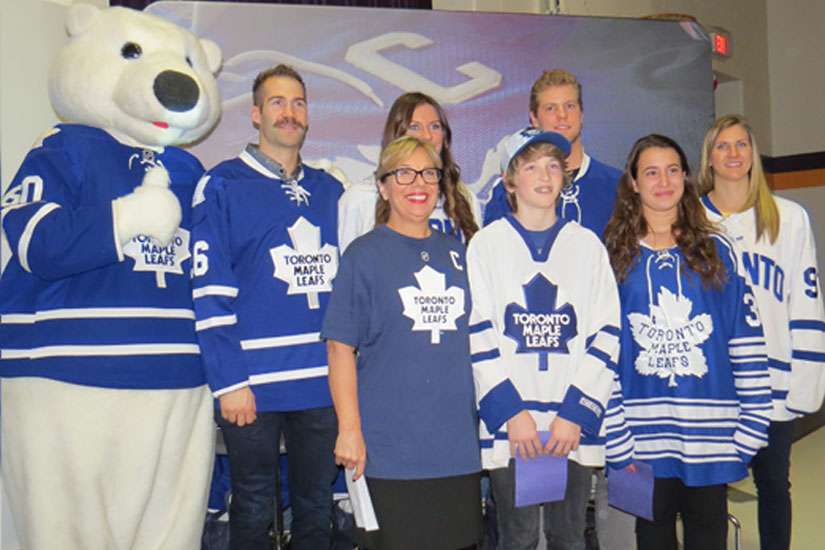Launched as a pilot program at All Saints Catholic School in Mississauga, Ont., the Future Goals program uses hockey to demonstrate how math skills can be applied to everyday situations. It gets children thinking about the use of numbers in ways intended to be interesting, fun and interactive.
Even non-hockey fans like Bestavros are impressed.
“I'm not a huge hockey fan, I don't know how to play hockey and I don't really watch hockey,” she said. “When they told us it was something about the NHL, I said, okay, well that will be about hockey and it won't really appeal to me. But when we actually took the program, I was pleasantly surprised.
“It kind of shows you don't just judge a book by its cover.”
The interactive educational software, which students access online, prompts students to apply the math curriculum to hockey situations. For example, teacher Christopher Carrabs recently used the software to have his students find a correlation between the number of goals scored and number of wins recorded last season by each NHL team as part of a lesson on scatter plotting, a form of mathematical graphing.
“It is giving them that understanding that, okay, maybe I don't want to go into engineering, I want to play hockey, but I can still apply this to my life,” said the Grade 8 teacher at All Saints Catholic School.
“If they know they can use it for something, they are more willing to learn about it. If we are using real-life examples of something that they enjoy and then connect it back to the actual curriculum and concepts, then I've already engaged them — the old hook and ladder sort of thing.”
And that's exactly what the NHL Players' Association hoped would happen with Future Goals.
“Our hope is that this program will give teachers a helping hand in the classroom by bringing these topics to life,” said Mathieu Schneider, special assistant to the executive director. “This program is designed to use technology and real life hockey examples as a way to teach kids the STEM (science, technology, engineering and math) curriculum.”
Carrabs believes “at least half of the students need that extra help to get that push,” an added incentive to become engaged in the academic component of the lesson.
But even students who are already successful can benefit by using the program to help with abstract concepts like friction, force and nutrition, said Toronto Maple Leaf and All Saints alumni Daniel Winnik, who visited the school Nov. 24 to officially launch the program.
Although still being rolled out in its pilot phase, the intention is to have the program used by elementary students in the 30 NHL cities, as well as “hundreds of additional communities.”
"We are extraordinarily excited about the partnership on Future Goals," said NHL Commissioner Gary Bettman. "Our clubs and our players coming together to create an educational program that emphasizes the science, technology, engineering, and math curriculum, and uses the game of hockey as a platform to accomplish good social engagement — there could be no better cause for us to work on together."
After seeing the program first hand, the once-sceptical Bestavros now believes programs like Future Goals can dramatically improve student success.
“If we had more programs like this I can guarantee that more people would be interested in things like math and science,” she said.
“They'd be more interested in academics because it shows you exactly how you can apply it to your daily life. Programs like this are awesome.”


